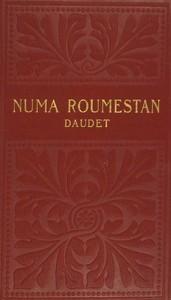|
|
Read this ebook for free! No credit card needed, absolutely nothing to pay.Words: 29894 in 7 pages
This is an ebook sharing website. You can read the uploaded ebooks for free here. No credit cards needed, nothing to pay. If you want to own a digital copy of the ebook, or want to read offline with your favorite ebook-reader, then you can choose to buy and download the ebook.

: The pronunciation of Greek; accent and quantity. A philological inquiry by Blackie John Stuart - Greek language Accents and accentuation; Greek language Quantity@FreeBooksThu 08 Jun, 2023 Transcriber's Notes: THE PRONUNCIATION OF GREEK; ACCENT AND QUANTITY. A PHILOLOGICAL INQUIRY. BY JOHN STUART BLACKIE, PROFESSOR OF GREEK IN THE UNIVERSITY OF EDINBURGH. EDINBURGH: T. CONSTABLE, PRINTER TO HER MAJESTY. THE PRONUNCIATION OF GREEK, &c. See the opinions of SCALIGER, SALMASIUS, and some others, quoted by WETSTEN. Havercamp, vol. ii. p 174. Nevertheless, Erasmus, Wetsten distinctly asserts, did not himself adopt in his practice the perfect theory of Hellenic vocalization which he sketched out. So much the less cause is there for our having any hesitation in considering the whole question as now open, and treating it exactly as if Professor John Cheke, and Professor Thomas Smith of Cambridge University, and Adolphus Mekerchus, knight and perpetual senator of Bruges, and the other Havercampian hoplites had never existed. Let us inquire, therefore, in the first place, whether any certain data exist on which such a matter can be settled scientifically. We shall give only the grand outlines of the question, referring the special student to the English work of PENNINGTON already quoted, the German work of LISKOV, and the Latin of SEYFFARTH. "If we find a word pronounced in a given manner in the time of Athenaeus, we are warranted, in the absence of proof, in supposing it to have been pronounced in the same way in the time of Homer; and what prevailed in Homer's time may be presumed to have continued till the age of Athenaeus."--PENNINGTON, p. 7. This is too strong. Considering the immense interval of time and progress of culture between HOMER and ATHENAEUS, and considering the tendency to change inherent in human nature, I can see no presumption that the pronunciation of the language should have remained through so many centuries unchanged. Free books android app tbrJar TBR JAR Read Free books online gutenberg More posts by @FreeBooks
: Numa Roumestan by Daudet Alphonse De Kay Charles Translator - Politicians Fiction; Social classes Fiction; Man-woman relationships Fiction; French fiction Translations into English; Spouses Fiction; France History Third Republic 1870-1940 Fiction@FreeBooksThu 08 Jun, 2023

: The mystery of Easter island: the story of an expedition by Routledge Katherine - Voyages and travels; Oceania Description and travel; Easter Island@FreeBooksThu 08 Jun, 2023
|
Terms of Use Stock Market News! © gutenberg.org.in2025 All Rights reserved.






